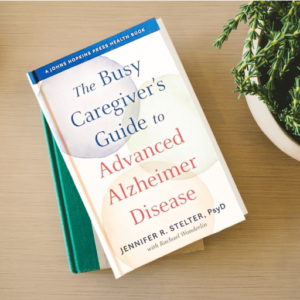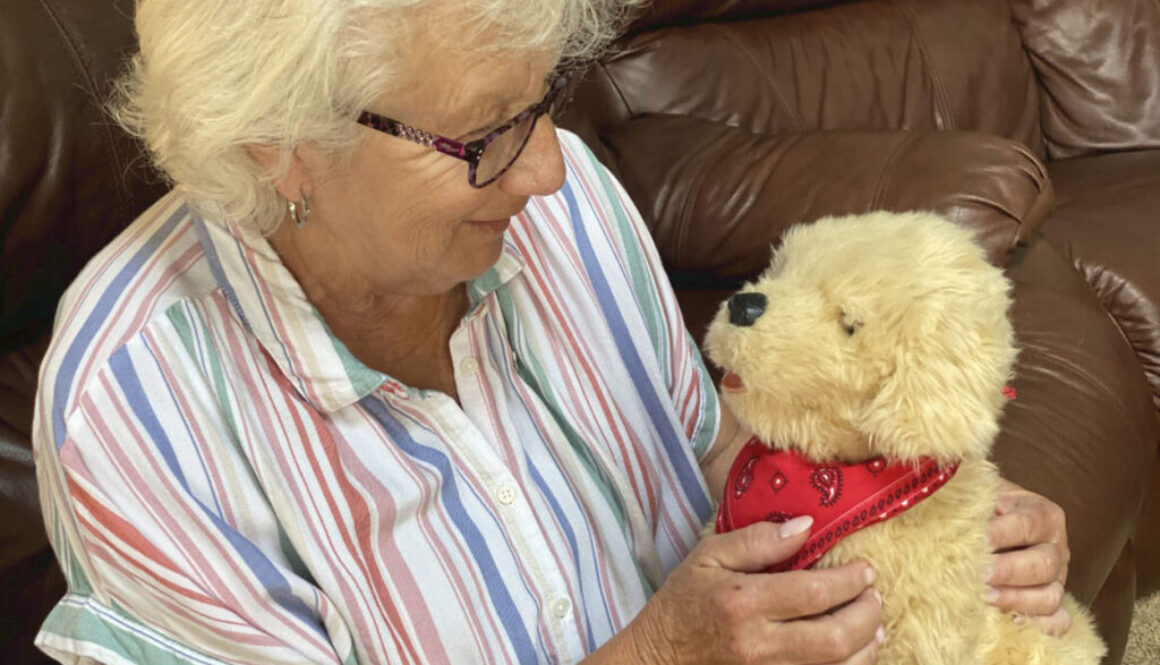Effective Communication: How To Talk With a Person Who Has Alzheimer’s
Communication is an essential tool everyone uses. Once we lose that seemingly small ability, it is not uncommon to find frustration filling its void. Communicating is vital for maintaining meaningful social interactions and meeting the needs of yourself and others. There are various forms of communication, such as verbal communication, body language, and even written communication.
People with Alzheimer’s disease eventually lose part or all of that capability to communicate. When a condition takes away something vital, like communication, it can be highly frustrating for the person with the illness and the person with whom they are trying to communicate.
As the caregiver for someone with dementia, it is essential that when you communicate with a person who has Alzheimer’s, you remain aware of the way you are communicating. Caregivers should use the type of communication that shows that they are there to help, have compassion and that they are there to support them.
Understanding the changes that may occur in communication and the following helpful strategies can make all the difference in the quality of life a person with Alzheimer’s can experience.
Changes in Communication
Since Alzheimer’s disease is progressive, meaning it worsens over time, the changes you see in a person’s communication will change depending on their disease stage.
Typically in the early or beginning stages, memory loss is mild, and this person still can have meaningful conversations and participate actively in social situations. You may start noticing things like they repeat the same stories or even have difficulty finding the word they need to use.
They may need help following long conversations and lose their train of thought when talking. It is common for them to get frustrated during a conversation if they can’t be understood. Some people who speak English as a second language may even revert to their native language, forgetting they know English altogether.
In the late stages of the disease, communication becomes much more difficult. Nonverbal communication often gets used in this stage, and you can expect things like the use of facial expressions and vocal sounds instead of actual words.
Tips for Effective Communication
People with Alzheimer’s Disease are not able to alter how they communicate with us. What they are going through is out of their control. Being the carer of your loved one with this disease, you can adapt how you communicate with them. Aiming your communication skills at increasing their attention and simplifying conversations is helpful.
Keep communication simple
- Encourage the person with dementia to use the most comfortable communication for them. They may prefer writing over talking or referring to pictures.
- Use basic language and speak at a slow rate so the other person has time to process.
- Keep your sentences short, remember that processing words for them can be a struggle, and only ask one question at a time.
- Step-by-step instructions are great to use when they need to complete tasks.
- Alzheimer’s patients might need you to repeat instructions, and it is essential that you remain calm and do not show frustration.
- Ask yes or no questions. The person with Alzheimer’s may find this easier to process and answer.
Keep a calm environment
- Minimize potential distractions by turning off the TV or radio. It is also important to keep the communication one-to-one so that your loved one doesn’t become distracted by the other person.
- Try to remain still while you are communicating with them. If the person you are trying to communicate with sees you fidgeting around, this may inadvertently cause anxiety within themselves.
Put a check on your communication skills
- Remember to approach the person with dementia from the front and always maintain eye contact.
- Talk to them as an adult and not as if they are a child.
- Ask questions where the person has to fill in their response. The questions can be as simple as “I need” or “I can’t,” and then they tell you what is missing to help address their needs.
- Use proper facial expressions when you are supposed to feel happy, scared, or sad while telling a story.
- Keep your tone at an appropriate level, and make sure your body language is appropriate.
- Listen to how the person responds emotionally; there may be more behind the meaning of what they are trying to tell you.
What should I not do when communicating with a person with Alzheimer’s
The next most rational thing to wonder is how I should not communicate with someone with Alzheimer’s. Communication becomes very difficult when frustration happens from ineffective communication. Follow these helpful tips when you are not sure what to do.
- Do not argue; this creates frustration and confusion
- Don’t question specific memories, and don’t confront them
- Don’t speak to them as if they are a child
- It is better to avoid questions where deep memories may live
- Try not to boss them around and try to tell them things they can do rather than what they cannot do
- Avoid attempting to guess what the person is trying to say in order to hurry the conversation
- When talking to a third person about your loved one with dementia, do not treat the situation as if they are not there
If you notice the person with dementia is becoming frustrated with their communication, you might want to try distraction. Try to switch the conversation to something more pleasant or even step away. Remember to avoid taking the things they say in frustration to heart; it is a genuinely confusing time for them.
Working with the person with Alzheimer’s healthcare team is vital to ensure they get the best quality of life possible. Don’t forget to take care of yourself and reach out to support groups for Alzheimer’s caregivers if you feel things are becoming too much. Resources for support, self-care and caregiving are available.
Takeaway Points
- When communicating with a person with Alzheimer’s disease, remember to keep communication simple and use short sentences at a slow pace.
- Using pictures may help when finding the right word is difficult.
- Don’t argue with someone experiencing Alzheimer’s; sometimes, using distraction by asking a different question can help ease frustration.
- Alzheimer’s disease is progressive, and communication abilities will fluctuate depending on the stage of the disease.
Banovic, S., Zunic, L. J., & Sinanovic, O. (2018). Communication Difficulties as a Result of Dementia. Materia socio-medica, 30(3), 221–224.
National Institute on Aging. Alzheimer’s Caregiving: Changes in Communication Skills.
Alzheimer’s Association. Communication and Alzheimer’s.
Mayo Clinic. Alzheimer’s and dementia: Tips for better communication.

Courtney Battaglia is a registered nurse with a bachelor’s degree from the University of Texas at Arlington. She has over 12 years of experience working directly with patients, many of whom experienced the effects of Alzheimer’s and dementia. Courtney is dedicated to providing resources for families and patients who are experiencing this diagnosis and continues to advocate daily for this population.
By combining her nursing knowledge with her passion for writing, Courtney strives to arm the public with the most accurate information for their health-related questions. While maintaining an active presence in delivering exceptional patient care, Courtney continues to promote and foster education to the public by breaking down recent research and news trends into easy-to-understand information.














